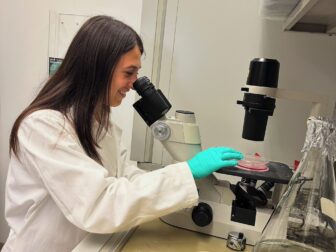Annalisa Ferrotta

Understanding Failure of PI3K Inhibitors in Treating Glioblastoma and Evaluating New Therapeutic Options
Summary
Glioblastoma (GBM) is the most common brain tumor in adults and is known to be highly aggressive. The five-year survival of GBM patients is only 5%, due in part to ineffective therapies that have remained unchanged for two decades. The phosphoinositide 3-kinase (PI3K) pathway, which promotes cell growth and proliferation, is overactivated in nearly all GBM patients. This led to the belief that drugs that inhibit PI3K would be effective treatments for GBM. Unfortunately, clinical trials investigating PI3K inhibitors in GBM have all failed, despite PI3K inhibitors being effective treatments for other cancers, such as lymphoma. My research seeks to understand and validate two potential biological mechanisms that may cause resistance to these PI3K inhibitors in GBM. I will also evaluate a new generation of PI3K inhibitors in patient-derived models of GBM to identify more effective therapeutic approaches.
Watch a Q&A with Annalisa
I am incredibly grateful for the support from the PhRMA Foundation to advance therapeutic development for glioblastoma, a devastating disease with no effective treatment options. In addition to connecting me to a network of renowned scientists, this fellowship empowers my research to push the boundaries of innovation with the ultimate goal of improving patient outcome.

